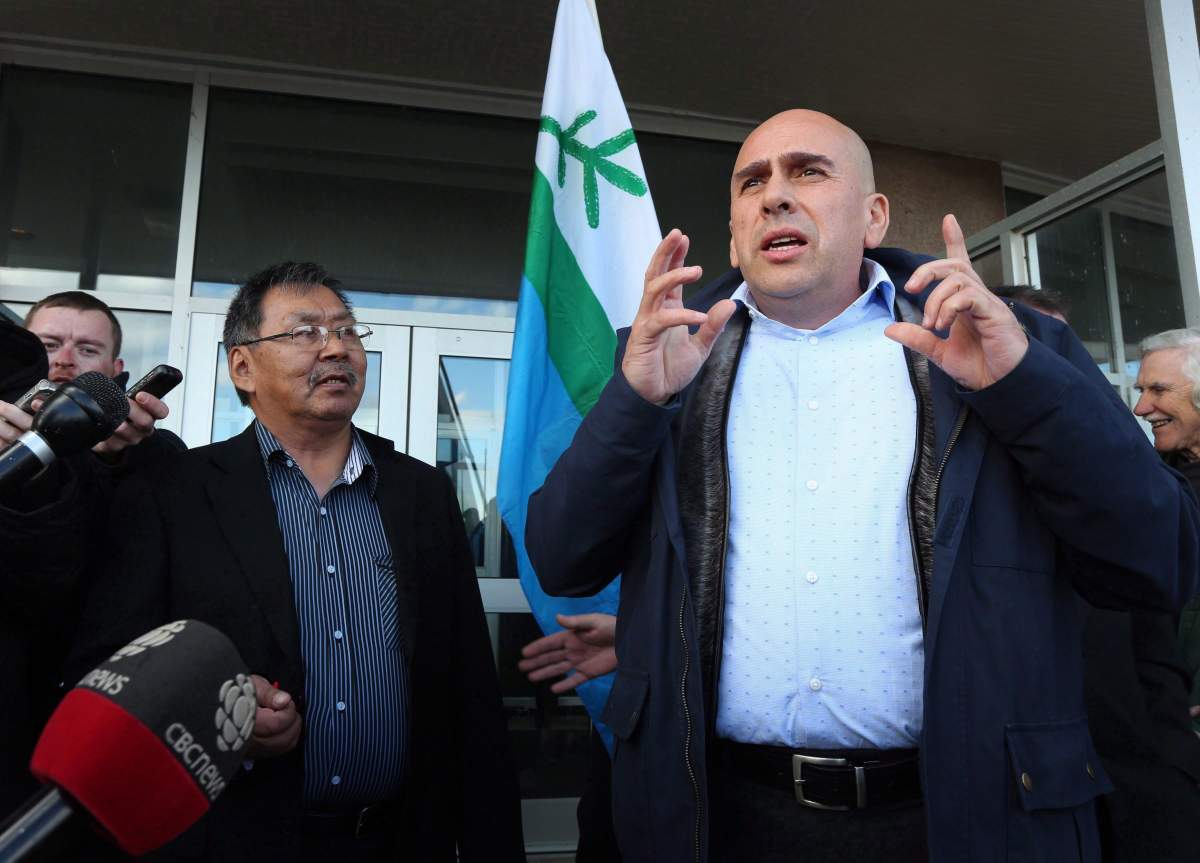The NunatuKavut community in southern Labrador is entering into historic talks with the Canadian government, as Ottawa moves to formally recognize an Indigenous group that speaks for those with Inuit ancestry.

But the announcement Thursday was panned by the neighbouring Innu Nation, whose leaders expressed concern that the negotiations would set back the Innu’s own negotiations with Canada.
Todd Russell, president of the NunatuKavut Community Council, and Carolyn Bennett, the federal minister responsible for Crown-Indigenous relations, announced the start of formal discussions around Indigenous rights and self-determination.
An emotional Russell addressed community members and politicians in central Labrador, saying the recognition of NunatuKavut rights is the most significant announcement from the Crown since the British-Inuit Treaty was signed in 1765.
“Our land and rights have not been respected for many years, but today is a new beginning,” he said.
“It means that we will give expression to the way we want to govern in our own land, something we have been fighting for for many, many years.”
WATCH: Organization connecting Indigenous communities with philanthropic sector

The NunatuKavut Community Council represents about 6,000 people in southern Labrador.

Get daily National news
It has been trying to negotiate a land claim with Ottawa for decades.
The ongoing discussions will address questions of governance and NunatuKavut’s land and resource interests in Labrador.
The NunatuKavut Community Council used to be known as the Labrador Metis Association before changing its title in 2010. According to the council’s website, the governing body “was formed in the early 1980s by southern Inuit who realized that their rights as Aboriginal Canadians were not being considered by governments in decisions being made about land use and social programs.”
The group’s website states that membership is “open to people of native ancestry, originally from Labrador.”
Bennett said it was an honour to make the announcement on behalf of the federal government, noting that her most recent visit to Happy Valley-Goose Bay was last November, when Prime Minister Justin Trudeau apologized to survivors of Newfoundland and Labrador’s residential schools.
Bennett said the talks would take a “collaborative approach” between partners.
“Our goal is to develop a joint mandate,” she said. “We will be sitting down with a blank sheet of paper.”
READ MORE: Toronto sign changed to honour Indigenous Peoples Day
In his opening remarks, Russell said the talks will explore the potential for more decision-making power, greater ability to deliver health care and education, and a stronger voice in the development of government projects.
Russell said there is no set timeline for the discussions, but he said he hopes the collaborative approach will be more fruitful than following the rigid structure of land claim negotiations.
Premier Dwight Ball did not attend the announcement, but a member of the provincial legislature, Lisa Dempster, offered a few words.
“The provincial government has long urged the federal government to make a decision on representation brought forward by NunatuKavut,” she said.
“Speaking from the province, I wish to affirm our government’s support for the co-operative process that is being launched today.”
Bennett said the federal government is aware of the overlapping Indigenous interests in the area.
“Obviously, we are very keen to work with other Indigenous groups in Labrador,” she said.
WATCH: Trudeau says N.L. residential schools apology ‘a step’ to reconciliation

The Innu Nation issued a statement, saying the Innu were not consulted about Thursday’s announcement.
Innu Grand Chief Gregory Rich later said he was “disappointed and frustrated” about the lack of consultation.
“It’s a like a slap in the face for the Innu Nation,” he said, adding that the new talks could have an impact on the Innu Nation’s ongoing land claim negotiations, which began in 1977.
Rich also said the NunatuKavut group does not represent an Indigenous group, a sentiment reiterated in a second statement that called the council a “settler organization.”
Innu land claim negotiator Peter Penashue said negotiations will become “a very messy process” now that the federal government has recognized the council.
Russell said there is no confusion about his group’s Indigenous identity.
“If other people are confused, we would ask that they give us a call so we can educate them about our history, our story, our truth,” he said.







Comments